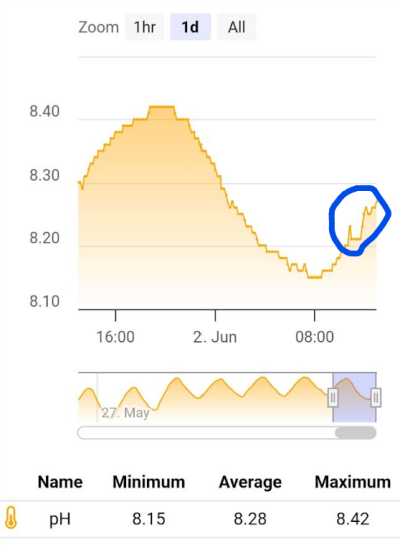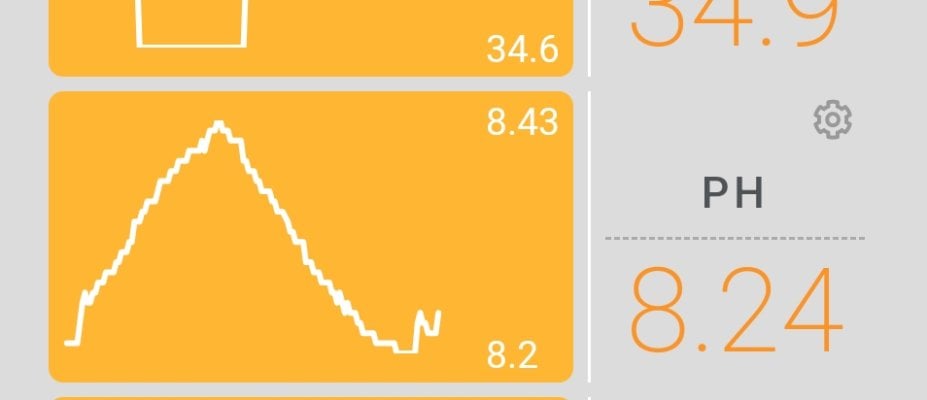- Joined
- Jul 16, 2009
- Messages
- 5,071
- Reaction score
- 8,108
See my recent post in this forum...If this produced excess of CO2 is not vented out of the aquarium (if the CO2 content in the surrounding air is low enough) or is not taken up by photosynthesis it will accumulate in the water and result in very low pH but the alkalinity can stoll be good. The best example of this is long transports of fish in plastic bags. I have measured pH levels below 6.4 in such water after 48 hours of transport. However, the alkalinity is still good. If you open the bag - take the fish out just in case - aerate the water, the pH will rise to the level corresponding to the current CO2 equilibrium between water and ambient air.
Sincerely Lasse
pH - daily up-down (lights on - lights off)
We went out of town for a week and the pH very visibly went way up and stayed that way until the day I got home. It was also very cyclically stable!
I was stunned (honestly) at both the rise and the stability without me, she and the 8 paws in the house.
Dosing is 20 times per day or so (1ml per dose) of Triton Core (other methods). Not that it is relevant, but I don't want anybody to think this has anything to do with bolus or broken buffers. It is Just a graphic illustration of your last post.
My Alk did drop just a bit (dose remained the same) --- presumably due to a bit better growth at the higher pH... or was it being wasted as precipitate
Last edited:























